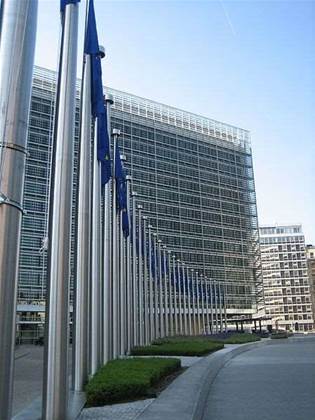European Union and US negotiators have missed a deadline to cement a key data transfer pact, with talks snagged over a new oversight role and options for European citizens to seek redress over data privacy violations.

While talks are still ongoing and a deal could be clinched in coming days, data protection regulators from across Europe are poised to begin meetings about restricting trans-Atlantic flows of personal data.
"There have been constructive but difficult talks over the weekend," a spokesman for the European Commission said.
"Work is still ongoing, we are not there yet, but the Commission is working day and night on achieving a deal."
EU data protection laws prevent companies from transferring citizens' personal data to countries outside the bloc deemed to have insufficient privacy safeguards, such as the US.
US officials and business executives have grown increasingly worried about the consequences of not having a new deal in place, despite a flurry of high-level talks in Brussels over recent weeks.
Some US industry representatives, believing they had exhausted their case, flew home this weekend after bringing their pitch directly to regulators across Europe.
A US industry source claimed a deal is "on the table", but that Europe apparently still wants to see more.
The US has proposed improving oversight of the new data transfer framework by creating an ombudsman to review decisions.
Meanwhile, the European Commission is pushing for the ombudsman to have the authority to make findings on US surveillance as opposed to just fielding complaints from European citizens and data protection authorities.
Negotiators had hoped to reach a deal before Věra Jourová, the EU Commissioner for Justice, Consumers and Gender Equality, reports to the European Parliament.
But that did not happen, with Jourová telling European lawmakers “negotiations are still ongoing, including at the political level”.
European lawmakers have expressed scepticism that the United States is serious about ensuring protection for privacy rights and claimed what it has offered falls short of legally binding assurances.
The talks come after revelations about mass surveillance programs in the US during 2013 prompted the European Commission to demand the strengthening of "safe harbour", a framework which more than 4000 companies have relied upon to avoid cumbersome EU data transfer rules.
However, the safe harbour framework was struck down by an EU court last year over concerns about US internet surveillance, leaving companies in legal limbo.



_(28).jpg&h=140&w=231&c=1&s=0)
_(20).jpg&h=140&w=231&c=1&s=0)






 iTnews Executive Retreat - Security Leaders Edition
iTnews Executive Retreat - Security Leaders Edition
 iTnews Cloud Covered Breakfast Summit
iTnews Cloud Covered Breakfast Summit
 Melbourne Cloud & Datacenter Convention 2026
Melbourne Cloud & Datacenter Convention 2026
 The 2026 iAwards
The 2026 iAwards












_(1).jpg&h=140&w=231&c=1&s=0)



